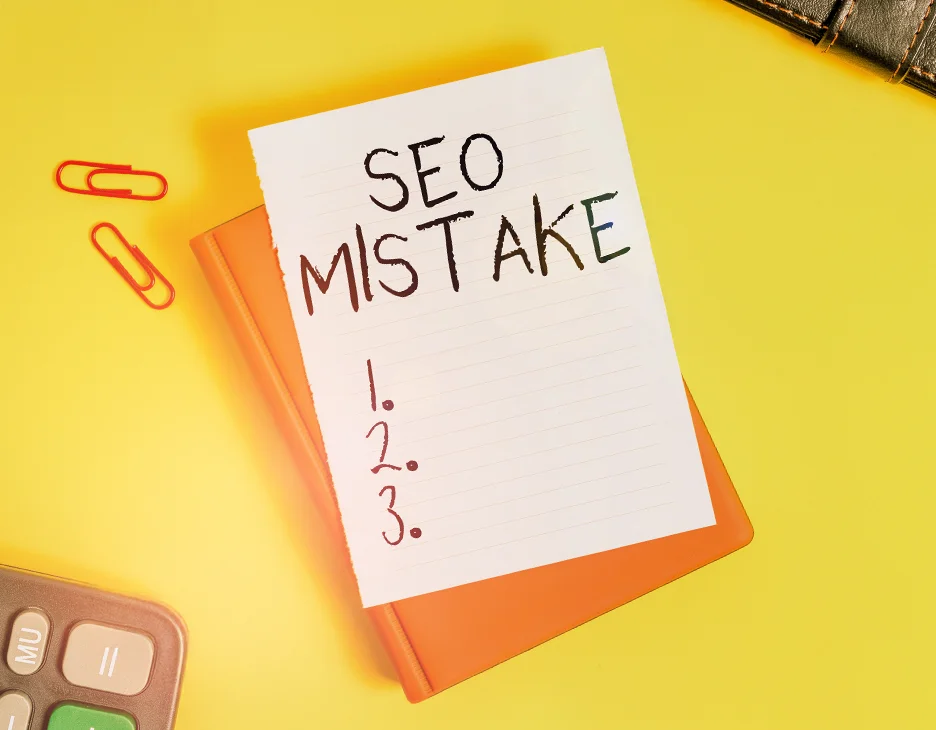Why Your Business Needs A Blog

Based on research by Internet Live Stats, there are now over one billion active websites on the internet – a statistic that continues to develop each second. With an ever-growing number of competitors landing a place on the web each day, it is imperative to ensure that your site remains one step ahead of the game.
One of the most effective ways to boost not only ranking but also traffic and conversions is to continuously update your website with fresh, rich content through blogs. Studies show that businesses that incorporate regular blog posts to their marketing strategy saw a 55% increase in visitors. With this in mind, we have devised a comprehensive guide on why your business needs a blog, accompanied by benefits and top tips.
A Guide On Why Your Business Needs A Blog
SEO marketing campaigns play a pivotal role in enhancing your online presence, which, in turn, will increase your customer or client base. Several techniques are used to boost your organic ranking, ensuring that your website is seen for the search terms that you specialise in. Although other methods such as link acquisition and assessing analytical data are all important components of a campaign, opting to incorporate a blog is perhaps the most beneficial. Not only are blogs a relatively inexpensive way to drive traffic to your website, but they also give you the chance to convey your true passion for the industry. Here we delve deeper into the core benefits of a business blog.
Humanises Your Business
While the landing pages on your website can be used to convey professionalism, the blog gives you the opportunity to connect with your audience. A plethora of topics can be included in articles from the latest industry news and business updates to handy tips and insightful stories. All of which help towards humanising your business, adding a personal touch that users can relate to.
When designing a blog page, ensure that it isn’t merely a one-way platform. Provide readers with the choice to leave comments or feedback on their thoughts, both of which encourage conversation on your article topic. You can then spend time filtering through comments, perhaps once a week, replying to readers. This is a fantastic way to demonstrate your care and dedication to the needs of your target audience.
You can find a great article, based on a talk by brand strategist Allen Olivo, on how to humanise your brand on CMO.

Sharable Social Media Content
The world continues to revolve around social media, which means that as a business, you should most definitely be using all platforms to your advantage. While it may be tricky to encourage website traffic through posting landing pages, it couldn’t be easier when you have rich, insightful articles ready to share.
Providing your ideal demographic with relatable, valuable and entertaining information is guaranteed to promote an increase in engagement. We have all seen an article which we can empathise with or shares our passion, so reshare on our page – you want to create blog posts that encourage this from your ideal target market.
Similarly to any other post type, you will only reap the benefits of social media sharing if you also take time to increase your following. The most effective platforms for sharing articles remain Facebook, Twitter and LinkedIn as they all allow you to add direct links to your website in posts. Neil Patel has put together an excellent article on how to gain more social media followers, which is a worthwhile read, especially for start-up businesses.
Establishes Authority & Builds Trust
Although the end goal is always for website users to make a conversion, it is rarely a process that can be completed overnight. Individuals must see your business as a trustworthy source, a company that they are willing to invest their money into before they even consider making a purchase. A highly effective way to establish authority and build trust with potential customers and clients is through providing them with helpful information, in the form of blogs.
Once you have built a relationship with readers, you will then be seen as their ‘go-to’ source of information when they are in need of tips, guidance or industry updates. Your branding, mission and key selling points will all become familiar to them, keeping your business at the forefront of their mind.

Improves Search Engine Ranking
One of the most significant benefits of blog posts is their ability to dramatically improve your search engine ranking. Google’s latest algorithms state that websites are ranked based on their percentage of fresh, rich content that is posted monthly.
The more content that is published, the more often search engine crawlers will visit your site to index new copy. Therefore, the more ‘useful’ your website will become in the eyes of Google, who will cleverly rank you higher than your competitors. Search engines want to remain as helpful to their users as possible, so will steer clear from suggesting any sites to them that are filled with outdated content or have been abandoned.
There are several different ways that you can ensure your articles are optimised for search engines, including the following:
- Add Keywords – Every blog post must include a keyword to capture searches. Keywords can be found using tools such as Google Keyword Planner.
- High Word Count – As mentioned above, the more fresh content you publish, the higher you will rank. Try to avoid posting articles that are less than 1,000 words.
- ALT Text – All images included in articles must have ALT text, which boosts web accessibility. Sites use on-screen readers to read ALT text for visually impaired website users.
- Title Tags – Also known as a meta title tag, a title tag is an element of HTML, which allows Google to pick up the title of your post or page. The title tag is shown on the search engine results pages (SERPs) and must be between 50-60 characters.
- Meta Descriptions – The meta description is a brief summary of your post or page, which is displayed in search results. Every article must include a meta description, which should be around 160 characters.
Boosts Session Duration
Blog posts are likely to include considerably more information than any website landing page. This means that, if written well, opting to publish regular articles will dramatically boost session duration.
Optimising each blog post for search engines using the tips mentioned above will also help towards this. Aspects such as an effective keyword found through Google Keyword Planner will mean that when you are shown at the top of search results, it will be because your post matches the needs of the reader. They will not immediately leave, but instead, stay on the page to read the remainder of the content to find the answer to their question.
The increase in session duration also relates to the idea that blog posts establish trust. If a reader finds your information useful, they are likely to revert back to your list of blog posts to continue reading up on their desired topic. Before they know it, they have spent more than half an hour browsing your website and familiarising themselves with your brand. You have now made an imprint in their mind and built a trustworthy connection.

Targets Long-Tail Keywords
Although adding relevant keywords to your articles has been briefly mentioned, it is a topic we believe is important enough to delve deeper into. When it comes to blog posts, you will not be picked up for your service or product keywords, but rather long-tail keywords.
Long-tail keywords feature three or more words, creating a phrase. They allow you to drill down further on your audience, meaning that you will only appear in the search results of those who genuinely want to read your article. Using long-tail keywords increases your likelihood of conversion as you are targeting the specific terms that users are searching, avoiding wasted clicks. A full guide on using long-tail keywords can be found on HostGator.
Generate Internal Links
Online marketing and achieving successful search engine optimisation is all about acquiring links to your site. While it is imperative to gain links from other sites, you can also create internal links independently through blog posts.
Adding internal links to posts when mentioning a product or service that you specialise in points the reader from one page to another. It allows them to familiarise themselves with your areas of expertise, again, establishing authority. It provides tonnes of opportunities to discretely encourage the reader to show interest in your business through naturally incorporating links into articles. Internal links are a super easy, yet effective way to direct website users to the landing pages that you want them to see.
Reap The Benefits Of Blogs
Particularly as a small, start-up business owner, it can prove tricky to schedule time to create blog posts. You may wonder whether they are worth the extra time; however, they are guaranteed to come alongside an array of benefits. Every content marketing strategy must incorporate blog posts to ensure that websites rank high on search engines. Try to keep the topics of your articles relevant to your industry, whether this may be top tips, ‘how-to’ guides or even essential updates in your field – the more fresh, rich content, the better!
















